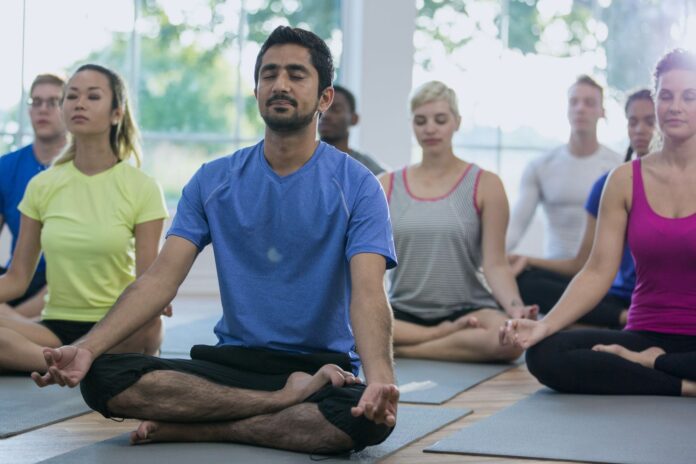Emory Healthcare Veterans Program is an internationally recognized center of excellence dedicated to transforming the lives of post-9/11 veterans and service members affected by invisible wounds such as PTSD and traumatic brain injury. We provide evidence-based, comprehensive care for our veterans and service members, all at no cost to them or their families. Treatment works and the following stories will show you the life-changing impact our veterans program has had on both our warriors and care team members.
A Holistic Treatment Approach
The Emory Healthcare Veterans Program takes a holistic approach to mental health care. Patients in our two-week Intensive Outpatient Program have one-on-one and group therapy sessions in the mornings and participate in wellness offerings for the remainder of the day. These offerings are designed to replace the negativity that invisible wounds impose with activities that promote a positive and healthy lifestyle. Warriors learn about and practice general wellness, nutrition, yoga, art, and music. For spiritual needs, we offer group and individual sessions with a chaplain. All wellness activities are provided by team members or vetted instructors who are sensitive to the needs and backgrounds of our warriors.
“I love the holistic and full-person approach at Emory Healthcare Veterans Program. Not only was there therapy, but they also cared about our spirit and physical well-being.”
– Intensive Outpatient Program Graduate
Yoga
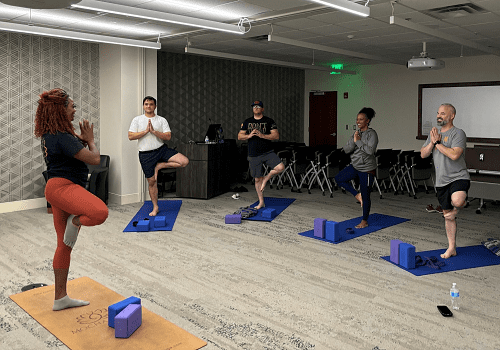 Shannon Claxton, a veteran who is certified in mindful resilience training, teaches a weekly yoga class. Yoga promotes mindfulness and acceptance and has the added benefit of improving flexibility and physical fitness. Our second yoga instructor, Marty Yura, has seen many yoga skeptics turn into believers. Marty says, “We sometimes have to convince warriors to come to the first yoga class, but a lot of those reluctant participants end up loving it and joining a studio after they graduate.” Marty, who served five years in the military as a psychologist, teaches beginner yoga to program participants two days a week. He adds, “Many patients have said that as their invisible wounds start to heal, they see improvements in their physical pain.”
Shannon Claxton, a veteran who is certified in mindful resilience training, teaches a weekly yoga class. Yoga promotes mindfulness and acceptance and has the added benefit of improving flexibility and physical fitness. Our second yoga instructor, Marty Yura, has seen many yoga skeptics turn into believers. Marty says, “We sometimes have to convince warriors to come to the first yoga class, but a lot of those reluctant participants end up loving it and joining a studio after they graduate.” Marty, who served five years in the military as a psychologist, teaches beginner yoga to program participants two days a week. He adds, “Many patients have said that as their invisible wounds start to heal, they see improvements in their physical pain.”
Art Class
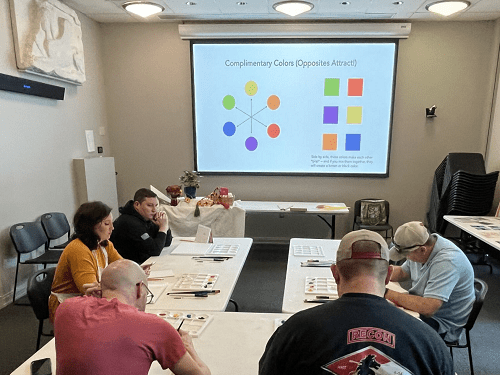 We have partnered with Emory University’s Michael C. Carlos Museum to offer a biweekly art class. Warriors travel to the museum on Emory’s campus (about 10 minutes away from the clinic) and meet with the staff to view artwork on display, participate in a discussion, and take part in an art activity. Mansi Mehta, PhD, clinical psychologist and Emory Healthcare Veterans Program’s wellness program lead, notes, “art therapy can be a personally freeing way of expressing one’s feelings, which, during an intense two weeks of therapy, can be extremely positive for warriors.”
We have partnered with Emory University’s Michael C. Carlos Museum to offer a biweekly art class. Warriors travel to the museum on Emory’s campus (about 10 minutes away from the clinic) and meet with the staff to view artwork on display, participate in a discussion, and take part in an art activity. Mansi Mehta, PhD, clinical psychologist and Emory Healthcare Veterans Program’s wellness program lead, notes, “art therapy can be a personally freeing way of expressing one’s feelings, which, during an intense two weeks of therapy, can be extremely positive for warriors.”
Music Therapy
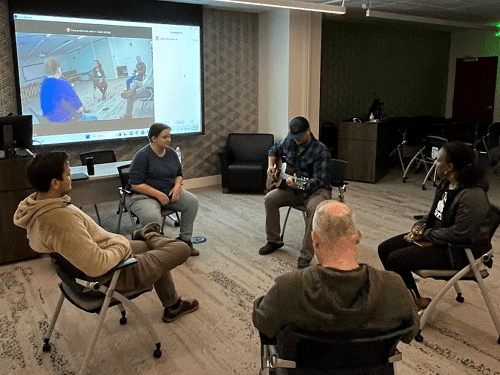 Our warriors participate in a biweekly music therapy course. A certified music therapist experienced in working with veterans and service members leads the group to make music together. Music therapy, like all wellness activities, is offered via telehealth to include remote Intensive Outpatient Program participants. Dr. Mehta adds, “many of our patients have responded very positively to this offering and some have even gone from a place of isolation and withdrawal from others to performing their own music live.”
Our warriors participate in a biweekly music therapy course. A certified music therapist experienced in working with veterans and service members leads the group to make music together. Music therapy, like all wellness activities, is offered via telehealth to include remote Intensive Outpatient Program participants. Dr. Mehta adds, “many of our patients have responded very positively to this offering and some have even gone from a place of isolation and withdrawal from others to performing their own music live.”
Chaplain Services
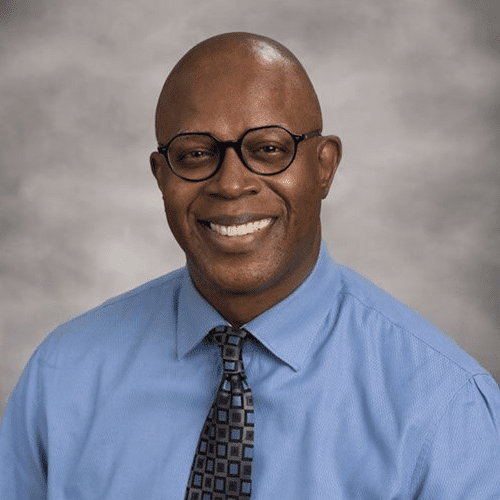 Darrell Robinson recently joined the Emory Healthcare Veterans Program team as our chaplain. Darrell served twenty years in the United States Army and twelve of those as a military chaplain. Now, Darrell works in Emory University’s Office of Spiritual Health and serves as the director of spiritual health at Emory University Orthopaedics and Spine Hospital. In his work on our team, Darrell meets weekly with the warriors in the Making Meaning of Service group and is available for one-on-one sessions. These sessions are interfaith, non-denominational, and all are welcome. Dr. Mehta said, “in post-treatment surveys, participants frequently mention how valuable these sessions were.”
Darrell Robinson recently joined the Emory Healthcare Veterans Program team as our chaplain. Darrell served twenty years in the United States Army and twelve of those as a military chaplain. Now, Darrell works in Emory University’s Office of Spiritual Health and serves as the director of spiritual health at Emory University Orthopaedics and Spine Hospital. In his work on our team, Darrell meets weekly with the warriors in the Making Meaning of Service group and is available for one-on-one sessions. These sessions are interfaith, non-denominational, and all are welcome. Dr. Mehta said, “in post-treatment surveys, participants frequently mention how valuable these sessions were.”
Effective Behaviors
The ability to communicate one’s needs to others in a clear and effective manner is essential to healthy, happy, and productive living. The Effective Behaviors group expands on the concept of “anger management.” In this single-session group, patients learn skills that improve their interpersonal communication and empower them to pursue their goals. If warriors want to continue working on their effective behavior skills after graduating from the program, they can join a weekly group led by one of Emory Healthcare Veterans Program’s clinical psychologists who specializes in anger management. There, warriors share challenges from the past week, receive support from fellow group members, and practice skills that support value-consistent living. “Being in this group … has been a game-changer for me. I’m learning that even when I want to just shut down or blow up on someone, that’s just not right. I can use these skills to help keep myself calm and do the things I actually need to do,” said one warrior.
About Emory Healthcare Veterans Program
Our two-week Intensive Outpatient Program is confidential and customized for our warriors’ specific circumstances and goals. The program is available to all eligible post-9/11 veterans and service members affected by invisible wounds, regardless of location, discharge status, deployment history or length of service.
Learn more about Emory Healthcare Veterans Program


